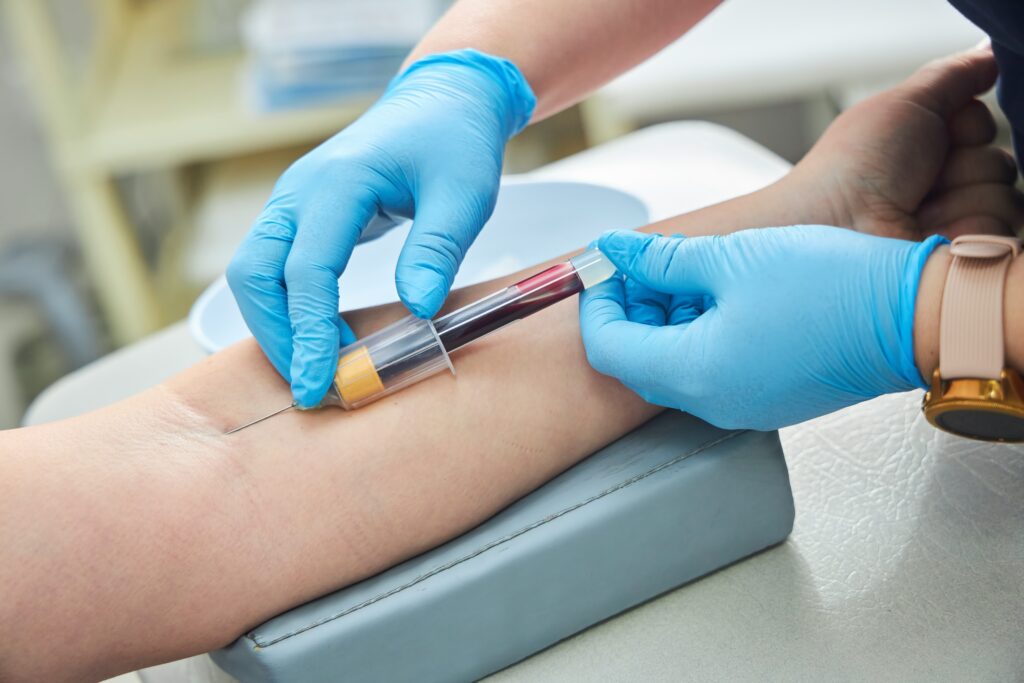Artificial intelligence (AI) is transforming how we detect diseases through blood tests. By analyzing patterns in blood test data, AI offers early warnings for conditions, including ovarian cancer and deadly infections.
Detecting Ovarian Cancer with AI
Ovarian cancer, often called “rare, underfunded, and deadly,” presents unique challenges, according to Audra Moran of the Ovarian Cancer Research Alliance (Ocra). Early detection dramatically improves survival rates. However, ovarian cancer frequently begins in the fallopian tubes, spreading before symptoms appear.
“Detecting ovarian cancer five years before symptoms could impact mortality,” Moran explains. AI-powered blood tests are now emerging to identify early cancer indicators.
Dr. Daniel Heller, a biomedical engineer at Memorial Sloan Kettering Cancer Center, has developed technology using carbon nanotubes. These nanotubes, 50,000 times smaller than a human hair, emit fluorescent light. When introduced to blood, they emit specific wavelengths based on molecules that bind to them. Interpreting these complex patterns, however, requires AI.
Machine-learning algorithms analyze the nanotube data, distinguishing between samples from ovarian cancer patients and healthy individuals. Training the AI presents hurdles due to limited data from the rarity of ovarian cancer. Hospitals often silo patient data, making it harder to build robust datasets. Despite these challenges, the AI achieved higher accuracy than current cancer biomarkers in early tests.
Dr. Heller aims to expand the system’s capabilities with larger datasets and more sensors. He envisions a future tool to help doctors triage gynecological diseases, providing quick, accurate diagnoses. This innovation could be three to five years away.
AI in Accelerating Other Blood Tests
AI isn’t just advancing cancer detection. It also accelerates testing for life-threatening infections like pneumonia. Alec Ford, CEO of Karius, a California-based company, explains how their AI-driven blood tests identify pneumonia pathogens in 24 hours, cutting down the need for 15 to 20 tests costing up to $20,000 in a single week.
Karius uses a massive microbial DNA database containing billions of data points. Test samples are compared against this database to pinpoint the exact pathogen, a task impossible without AI. Ford highlights the efficiency and precision AI adds to infection diagnosis.
Similarly, Dr. Slavé Petrovski, a researcher at AstraZeneca, developed the Milton AI platform, which identifies 120 diseases with over 90% accuracy by analyzing biomarkers. AI’s ability to find patterns across massive datasets surpasses human capabilities, especially when diseases require considering complex biomarker patterns.
Overcoming Data Challenges for AI in Medicine
While AI’s potential is immense, data limitations remain a key obstacle. Ovarian cancer research, for example, suffers from insufficient shared datasets. “People aren’t sharing their data, or there’s no mechanism for it,” Moran notes.
Ocra is addressing this gap by funding a large-scale patient registry. This registry includes electronic medical records from patients who have opted to share their data for AI algorithm training. Moran emphasizes the early stage of AI development in healthcare, describing it as “the wild west of AI.”
AI’s capacity to decode intricate patterns in medical data is already proving transformative. As data-sharing mechanisms and algorithm refinement improve, AI is set to revolutionize early disease detection and medical diagnostics further.
